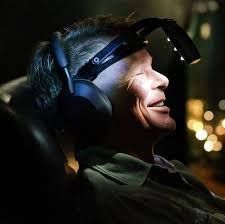Parasympathetic Modality Sessions
 Dr. Jason Scoppa
Dr. Jason Scoppa- Dec 22, 2024
- 3 min read
Updated: Mar 7
As you may know, no matter what stresses us out in life, our body has only one response to stress. So it doesn't matter if it's a fight with your significant other, food poisoning, a virus, or a knee injury, our nervous system responds with a sympathetic reaction. Different systems in our body may be affected, but in terms of the nervous system's response to the stressor, we only have one setting for stress and it's NOT depended on the type of stressor.
Sympathetic is our body's stress mode, which we need to get us through emergencies or difficult times; this is sometimes referred to as "fight or flight". More blood is sent to our extremities, our heart beats faster, stress hormones like adrenaline are secreted to give us immediate energy, and it's meant to be a short-term mode or a built-in emergency response.

Most of the time we should be in something called parasympathetic, which is also referred to as "rest and digest". In this mode we can digest and integrate food, heal ourselves at a cellular level, and is our body's most efficient state in terms of general well-being.
Unfortunately most of us are stuck in a state of SYMPATHETIC dominance. This can sound so cliche' and maybe it's overstated, but this can actually be measured with blood markers (CRP, Homocystine, cortisol, etc.), heart rate variability, a physical and measureable adrenal response (as described by Selye), orthostatic hypotension (blood pressure response), and others. Why should you care? Many of our patients come to us with issues ranging from aches/pains, tinnitus or other non-pain dysfunction, and possibly more chronic issues such as hormonal, microbial (viral, parasitic), or neurological. In all of these scenarios, no matter how skilled or amazing the practitioner, supplement, or treatment may be, it can only be met with limited success if a patient is stuck in "fight or flight". The body is very inefficient in this sympathetic state and it means you're not getting the most out of your efforts to combat whatever issue you're dealing with.
Dr. Scoppa has struggled with this for a long time, with adrenal support being minimally effective and not getting to the root cause, and with many of his patients having plateud or not gotten alot out of mental/emotional support such as therapy, mediation, etc. For years he's been testing various ways to combat this problem. Sometimes it's relatively straightforward in that you can control certain aspects of your life, while others you cannot. For example, if eating a certain food causes your body added stress, sometimes eliminating that food is enough to decrease the overall stress load and bring your body back into parasympathetic. However, many things we cannot control, or have limited ability to change or control (relationships, work, family, EMF exposure, air or water quality, etc.).
Dr. Scoppa has put together something called a "modality session" to help patients get the most out of their treatment in our office and whatever other person or technique they may be pursuing. These sessions last approximately 10 minutes, and combine multiple proven modalities that amplify their effectiveness when used simultaneously. This is what is looks like:
Arrive at least 10 minutes early to your session. This is very important! Driving, weather, etc. can all cause increase stress in our bod and you need to give yourself at LEAST 10 minutes to come in a relax prior to starting a session.

woman taking time to relax, without her phone! After you've had some time to relax, your heart rate variability, blood pressure, and cortisol levels are checked prior to your session.
You will be set up in a comfortable chair with all the equipment, so all you have to do is relax. The session lasts around 10 minutes.
Once completed, we will re-check your heart rate variability, blood pressure, and cortisol levels. You'll be surprised at the change 10 minutes can make!
Feel free to hang out for a bit in our reception area prior to departing.
What modalities are part of the session?
It's a combination of PEMF, red light, and occular therapy using light. Although we have found they work well, and actually amplify the effectiveness of each other, you can choose to not do whichever modalities you'd prefer not to have.


Is there anyone that shouldn't do these sessions?
If you have a history seizures you wouldn't be able to do the occular light therapy. If you have a pacemaker you may not be able to do the PEMF.




Comments